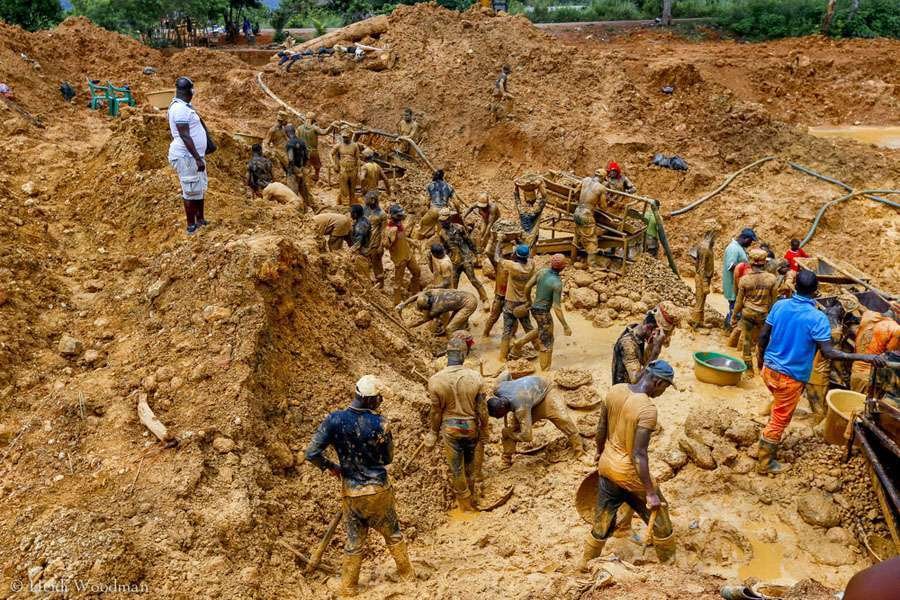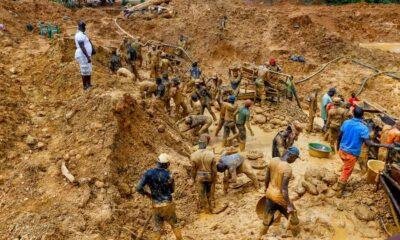Nutrition
Staying Osteoporosis free with our diet
In this chapter, we will be discussing how we can live an osteoporosis free life with our diet.
People once thought a shrunken, stooped posture was a natural part of ageing, but the real culprit is osteoporosis. The skeleton constantly breaks down and rebuilds itself via cells called osteoclasts and osteoblasts, respectively. However, as we age we tend to lose bone faster than we rebuild it, which decreases the bone density, making it weaker and more likely to fracture/ break.
Osteoporosis is the major underlying cause of fracture in postmenopausal women and the elderly, and it develops silently. It may only be discovered after a fracture which usually involves the hip or the wrist joints, but may involve other joints during a minor bump or fall. Little fractures in the spine may gradually reduce height and also leads to stooped posture.
Osteoporosis can be prevented and its development decelerated through an adequate diet and lifestyle plan.
Foods to include
Calcium rich foods such as; milk, yogurt, anchovies, and sardines.
Potassium rich foods such as; banana, coconut water, tomatoes, and eggplants.
Phosphorus rich foods such as; poultry, nuts and legumes, fish, and eggs.
Vitamin C rich foods such as; oranges/tangerines, limes/lemons, and bell peppers.
Vitamin D rich foods such as; salmon, sardines, and mushrooms.
Vitamin K rich foods such as; cabbage, avocado, and lettuce.
Foods to avoid
Sodas and caffeine rich drinks
Red meat and meat products
Processed foods
High fat diet and fast foods
Highly salted foods
Lifestyle modification
Going for walks, especially early morning for that early morning sunshine Vitamin D, jogging, skipping and other weight bearing exercises may help preserve the bone density.
Moderation of alcohol and cessation of cigarette smoking cannot be over looked.
In conclusion, many of the conditions we blame on old age have very tangible ways of being avoided in our youth. Let’s not wait till it’s too late; let us change our lifestyles and diets now, so that we can continue to easily get up and go when our youth begins to depart.
The writer Dr. Bernice Korkor Asare is the CEO of Holistic Health Consult
“Your diet your health, your health your wealth”
E-mail: holistichealthconsultgh@gmail.com
Nutrition
Galamsey and Nutrition: Counting the real cost of Ghana’s gold rush

Illegal small-scale mining, or galamsey, has been branded as one of Ghana’s gravest environmental and economic threats. Successive governments have promised action, task forces have been deployed, and billions of cedis lost in revenue have been reported. Yet a deeper crisis is unfolding beneath the surface: a nutrition emergency directly linked to the destruction caused by galamsey.
Across mining belts in the Western, Ashanti, and Eastern regions, rivers that once sustained farming and fishing are contaminated with mercury and cyanide. Farmers say irrigation is impossible; fishermen say their nets return empty. Independent studies confirm that mercury levels in some rivers exceed World Health Organisation guidelines. The result is a sharp reduction in safe food production and an erosion of the very foundation of Ghana’s nutritional security.
The figures are sobering. Nationally, one in five children under five is stunted. Nearly half of women of reproductive age are anaemic. Child wasting remains at emergency levels in some districts. The destruction of fertile land and poisoning of water through galamsey only compound these problems. In some mining-affected districts, local health authorities report higher rates of undernutrition and anaemia than the national average.
Economists estimate that malnutrition already costs Ghana up to 6.4 per cent of its GDP each year in lost productivity, poor educational outcomes, and higher health expenditures. With agriculture compromised by galamsey, the bill is rising. Food inflation is being felt in urban markets, while rural households in mining areas are forced to survive on monotonous diets that lack the nutrients needed for growth and development.
The accountability gap is glaring. Ghana committed at the 2025 Nutrition for Growth Summit to invest $6 million annually in nutrition. Yet the same state resources continue to be drained by environmental damage, water treatment costs, and agricultural losses linked to galamsey. While authorities launch operations against illegal miners, enforcement remains inconsistent and politically fraught, raising questions about who benefits from the destruction.
Experts warn that without decisive action, galamsey will derail Ghana’s progress toward the Sustainable Development Goals, particularly those on zero hunger, good health, and climate action. “Every river poisoned is a food system destroyed, and Ghana cannot achieve food security while watching our land vanish,” says Dr Charity Binka, Executive Director, WOMEC.
The evidence is clear: galamsey is not just an environmental crime. It is a public health emergency and a development crisis. Addressing it requires more than rhetoric; it requires enforcement, transparency, and the political will to confront vested interests. Unless this happens, Ghana risks trading its children’s nutrition and future productivity for short-term gains in gold.
We therefore demand the activation of permanent inter-agency galamsey response teams with prosecutorial authority independent of political interference and the establishment of a Galamsey Restoration Fund financed through penalties for river remediation and emergency nutrition interventions. We also call for the publication of quarterly malnutrition data disaggregated by mining-affected districts.
We join the call for amendments to the Minerals and Mining Act with a focus on mandating nutrition impact assessments with automatic permit suspension for violations, the resourcing of community water monitoring committees with testing kits, and the invitation of UN Special Rapporteurs to assess affected regions and provide independent recommendations.
We urge every citizen to demand that their MP publicly declare their enforcement plan and support stronger penalties, because the evidence is overwhelming and the solutions are known. Ghana’s rivers, farmlands, and children cannot wait for another empty promise.
Feature Article by Women, Media and Change under its Nourish Ghana: Advocating for Increased Leadership to Combat Malnutrition Project
Join our WhatsApp Channel now!
https://whatsapp.com/channel/0029VbBElzjInlqHhl1aTU27

Nutrition
Galamsey: Stealing nutrition from Ghana’s children

On the banks of the River Pra, Ama, a mother of three, points to the murky water flowing past her village. “We used to drink from this river. We used to fish here,” she says. “Now, even our crops die when we use it to water them.” Ama’s children rarely eat fish anymore, and vegetables from her once-fertile farm are scarce. Their daily meals now consist mostly of cassava and a little palm oil which is filling, but far from nutritious.
Ama’s story is not unique. Across Ghana’s mining communities, illegal small-scale mining, or galamsey, is robbing families of the very resources they need to eat well and stay healthy. The focus of public debate has often been on the destroyed forests, poisoned rivers, and billions lost in gold revenue. But beneath the surface lies a quieter tragedy: a nutrition crisis with lasting consequences for Ghana’s children.
With rivers poisoned by mercury and cyanide, farming and fishing have collapsed in many galamsey zones. Families that once relied on fish as a key source of protein now go without. Crops watered with polluted streams fail to thrive, while fertile cocoa and vegetable farms have been dug up and abandoned. With food production disrupted, prices climb, and poor households are forced to rely on cheap, starchy meals with little nutritional value.
The impact is already showing. Health workers in mining areas report higher cases of child stunting, anaemia among women, and underweight children compared to farming districts. Pregnant women face greater risks during childbirth, while children raised on nutrient-poor diets struggle with growth, learning, and long-term productivity.
The problem stretches far beyond the mining pits. When rivers like the Pra, Ankobra, and Offin are polluted, irrigation systems and fisheries downstream are also destroyed, threatening food supplies in entire regions. In the long run, galamsey doesn’t just damage land, it undermines Ghana’s fight against hunger, malnutrition, and poverty.
If Ghana is serious about protecting its people, tackling galamsey cannot be seen only as an environmental or economic battle. It must also be seen as a public health and nutrition emergency. Safeguarding rivers and farmland means safeguarding the right of every child to eat a balanced diet and grow to their full potential.
Ama’s children, and thousands like them, deserve more than poisoned water and barren fields. They deserve safe food, clean water, and a future free from malnutrition. Ending galamsey is not just about saving the land; it is about saving Ghana’s nutritional future and the next generation.
We call on government to deploy multi-sector response teams that include health and agriculture officials, establish mobile nutrition clinics in affected areas, and mandate nutrition impact assessments for all mining permits. We urge traditional authorities and assemblies to enforce local bylaws and support community-led river monitoring systems.
We challenge citizens to demand quarterly transparency reports on galamsey enforcement and nutrition indicators from their MPs and district assemblies and we encourage the media to continue investigating the financial networks behind illegal mining. Ghana has the laws and resources, what’s missing is the political courage to enforce them. Ama’s village, and countless others like it, cannot wait any longer.
Feature Article by Women, Media and Change under its Nourish Ghana: Advocating for Increased Leadership to Combat Malnutrition Project
Join our WhatsApp Channel now!
https://whatsapp.com/channel/0029VbBElzjInlqHhl1aTU27

 Profile6 days ago
Profile6 days agoAlbert Litela Obidiaba: The artist who wove Ghana’s soul into the King’s Baton

 News6 days ago
News6 days agoDaddy Lumba’s wife, children run to court to injunct December 6 funeral arrangements

 News1 week ago
News1 week agoPresident Mahama to meet Auditor-General, Chief Justice and Attorney-General over misuse of public funds














